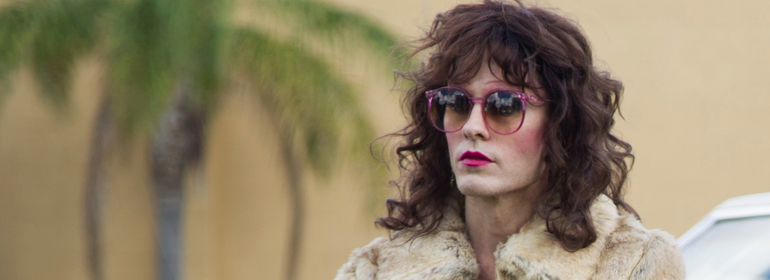Jared Leto was publicly heckled for being a straight man playing a trans woman, but is he really doing a disservice to the trans community, asks Rob Buchanan.
Recently Oscar-nominated Jared Leto was accused of trans misogyny by a heckler at the Santa Barbara Film Festival, who felt his role as a trans woman Rayon in Dallas Buyers Club should have gone to a trans woman. The heckler shouted: “Trans misogyny does not deserve an award!”
The term ‘trans misogyny’ was recently coined in a book called Whipping Girl by Julia Serano. It attempts to label misogynistic behaviour against transgender women, similar to the sexism experienced by non-trans women. Leto seemed confused by the accusation and asked the heckler to elaborate.
She replied: “You don’t deserve an award for portraying a trans woman, because you’re a man.”
Leto’s response was both pragmatic and commendable for its logic: “So you would hold a role against someone who happened to be gay or lesbian? They can’t play a straight part? Then you make sure that people that are gay, people that aren’t straight, people like the Rayons of the world, would never have the opportunity to turn the tables and explore parts that aren’t central to who they are.”
To my mind the heckler’s hypocrisy would be more at home on satirical shows like The Colbert Report, or perhaps in Monty Python, than in genuine discourse on the very real subjects of transphobia and misogyny. The idea that a woman defended the rights of trans women by saying that a man couldn’t play a woman is frankly ridiculous on every level. Worse than that, while there is a genuine need for the debate about trans representation in media, this heckler completely muddied the waters and wasted an extremely good opportunity with an overly simplistic and immature brainfart.
There’s far more than a mere heckle going on beneath the surface of this event, though. Throughout the history of cinema we have all cringed at over-the-top, outrageously camp gays being lampooned in comedies, and likewise at a disproportionate amount of serial killers or sex criminals are queer. ‘Gay’ has long been convenient shorthand, utilised by unskilled writers to bring some spice to a character.
Recently this has changed, probably because there is more visibility of gay and lesbian actors in Hollywood, and more and more of the people behind the scenes are coming out. But it is not the same for trans people.
The sad fact is that currently trans people are as marginalised in movies as they often are in daily life. Their identities tend to be reduced to biological curiosities or prostitutes. I can only imagine how hurtful it is for a trans person to hear about a character in an upcoming movie and hope for reflection, or maybe even a little bit of glamour, only to see a distorted or incredibly narrow, stereotype on screen.
But limiting the kinds of actor who can play trans roles is never going to widen the representation. The truth is that through by straight actors taking on gay roles in mainstream Hollywood, the willful misunderstanding of homosexuality in the movies has been cast off, and the result is that more gay actors are coming out, and more people behind the scenes in the industry are coming out too.
Let the best actor get the role, not just the actor whose genitals, skin colour or sexual orientation suit it. Wouldn’t it be wonderful if we lived in a world where the physical appearance of an actor was less important than the character being portrayed? Todd Haynes’ fantastic Bob Dylan biopic I’m Not There springs to mind as a great example of how subverting gender or skin-colour is turned in to a strength, deepening our understanding of the character. In the movie six actors depict different facets of Dylan’s personality and stages of life. These include a woman and a young black boy.
Narrowing the boundaries of creative expression only stymies that expression. Trans people should be given more expression, for sure, so while straight men continue to play trans women and vice versa, trans writers and actors and directors should be nurtured, and in time we will see more trans people playing trans people in movies, and on television.
In the meantime, we should be glad that this conversation is being had at all.
© 2014 GCN (Gay Community News). All rights reserved.
